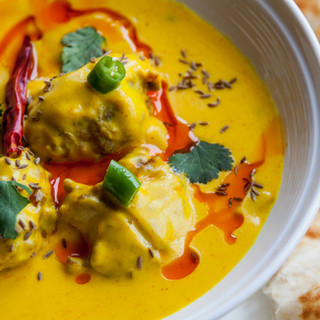The Big Fat Series Part III - Vegetable Oils
- Vicky Sham

- May 29, 2019
- 5 min read
Updated: Oct 1, 2020
Which Fats Are Healthier - Animal or Vegetable?
It is completely your choice because one is not better than the other. If you don't follow a strictly plant-based diet, you should consume both for maximum nutritional benefit. For a healthy body, we need all fats including saturated, mono-saturated and poly-unsaturated fatty acids from a range of natural food sources.
The only fats you should avoid are trans fats, most commonly found in packaged and highly processed foods like cookies, cakes, deep fried and baked convenient food.
Bad Fats: Low-Fat Vegetable Oil
Animal fats can be unhealthy if they come from grain-fed animals raised in cages and injected with antibiotics and added hormones. The same applies to fats derived from grains, as we shall see the deal about vegetable oils. Watch out for health claims such as "low fat", "low cholesterol" and "heart healthy" on any food packaging, these foods may be highly processed, contain partially hydrogenated (trans fats), preservatives and artificial ingredients that take you far away from real, nutritious food.
Vegetable Oils Are Crop Oils
Oils extracted from corn, soy and canola are not vegetable oils. Corn is a grain, soy is a legume and canola is a seed, none of them is a vegetable. Consumption of these grains is sometimes associated with nutrient deficiencies, because grains contain anti-nutrients called phytates or phytic acid. Anti-nutrients protect these minerals essential for seeds to grow and thrive, this is exactly how plants protect their offspring. Phytates are plants' defence mechanism to protect their seeds as they pass through our digestive systems. Phytates bind strongly to iron, zinc, magnesium and calcium and prevent the human body from absorbing them.
The nutritional content of vegetables oils or crop oils is quite low compared to those of olives, avocados, coconuts and humanely raised, grass-fed animals.
Benefits of Vegetable Oils
Corn, soybean and canola oils are cheap, odourless and shelf-stable. They have high smoking points, making them suitable for cooking and even deep frying. Crop oils are rich in polyunsaturated fatty acids (PUFA) but the unsaturated molecules are very prone to oxidative damage and can spoil easily. Fish oils supplements are an example of unstable PUFA. That's why fish oils need to be stored in dark bottles and cool places. The highly refined corn and canola oils you see in supermarkets are nothing like their natural, unrefined versions, they can last for months on the shelves without going rancid.
The long shelf-life of vegetable oils is certainly a benefit for the food manufacturers and retailers. Is it a benefit for your health though?
Extensive Processing of Vegetable Oils
The extraction of oils from these crops involves extensive treatment with high-heat, solvents, degumming, distillation, bleaching, deodorisation and winterisation. Whatever little nutritional content in the grains, legumes and seeds is pretty much gone by the end of the extraction and refinement. For example, soybean oil contains a powerful antioxidant vitamin E, but most of it is lost through deodorisation. The end products often contain some trans fats, and cooking with high heat could result in further oxidation and harmful chemical reactions to the fats.
Remember part I of this series, fats are essential because our cells are made of fats, and many physiological functions in the body depend on fats. The quality of fatty acids we ingest directly affects the robustness of our cells and many biological functions. Hence you do not want to eat poor quality oils that suffer free radicals damage (aka oxidation).
Aren't Polyunsaturated Fats Good For You
True. Corn, canola, sunflower, safflower and soybean oils are rich in polyunsaturated fats, especially omega 6 fatty acids which balance cholesterol and support inflammation essential for health. However, modern day diets tend to be high in omega 6 anyway, which is pro-inflammatory and increases the risk of heart disease. We should aim to increase intake of omega 3 fatty acids from olive oil, flaxseeds, salmon, tuna, anchovies. If you are still keen to increase Omega-6 intake, try flaxseeds, pumpkin seeds, sunflower seeds, acai, as well as minimally processed cold-pressed seed oils.
For more on omega 3 and omega 6 fatty acids, please see my next blog.
Minimally Processed Oils
Consuming oils extracted from plants using traditional methods is totally fine, just like our ancestors have done to olives in the Mediterranean and sesame seeds in China. Expeller- or cold-pressed oils from avocados, walnut, flaxseed, sesame are great for salad dressing or smoothies. Avoid cooking them in high heat, as the polyunsaturated fats are more prone to oxidation when heated. Olives and extra-virgin olive oil (EVOO) are rich in monounsaturated fats. They also contain polyphenols which are antioxidant and anti-inflammatory. EVOO makes great salad dressing and low heat baking but don't cook it under high heat.
Is It Safe to Cook with Vegetable Oils
It is probably ok to sauté or stir fry with crop oils under low to medium heat. Canola is marginally better than corn or soybean oils. Peanut oil has a high smoke point but, similar to other vegetable oils, it contains trans fats. Sadly most restaurants use vegetable oils for cooking. You can avoid the worst by skipping deep-fried food. High temperature can cause more unhealthy reactions in these oils, ideally you should rid them all from your kitchen. If there is a choice, you are better off eating steak with butter and potatoes fried in lard. Yes, lard! It is even better if you don't eat fries but I know they are irresistible.
What Oils Should We Use for Cooking?
So, why do we cook with "vegetable" oils if there are more nutritious and stable oils like avocado oil, coconut oil, organic butter and grass-fed ghee? Lard, butter, ghee and other animal fats have more saturated fats, higher smoke points and are more stable against high heat. Saturated fatty acids contain long chains of carbons that are fully hydrogenated (i.e. saturated with hydrogen atoms), which means they are unlikely to suffer oxidative damage or form harmful molecules when heated.
Grass-Fed Ghee and Coconut Oil
Grass-fed ghee is basically clarified butter with a high smoke point of around 450F/ 230C. It contains conjugated linoleic acid (CLA) which is protective against cancer, a unique feature of fats from properly raised animals. Grass-fed ghee is nutrient dense with anti-inflammatory omega 3 fatty acids, fat-soluble vitamins A, D, E great for eye, bone, skin health, and butyric acid essential for gut health and supports metabolism. Remember to roast potatoes with duck fat or lard at the next Thanksgiving or Christmas meal.
Coconut oil is great for medium heat cooking and baking (up to 350F/ 175C), and makes delicious curries, soups and cakes.
Get Your Dietary Fats from Real Food
There is no need to fear fats that come from animals sustainably raised in their natural environments that graze, exercise and poop on pastures. Pasture-raised animals improve the biodiversity and microbiome for your health and the environment. You should also get your dietary fats from real plant foods like avocados, olives, coconuts, nuts, seeds, and cold-pressed extra virgin oils.
Bon-appetite!
Please see other blog posts of The Big Fat Series on healthy sources of dietary fats and the story of trans fats.
Further Information
1. Siri-Tarino, Patty W., Sun, Qi, Hu, Frank B, Krauss, Ronald M. (March 2010). "Meta-analysis of prospective cohort studies evaluating the association of saturated fat with cardiovascular disease." The American Journal of Clinical Nutrition
2. Hamley, Steven (19 May 2017). "The effect of replacing saturated fat with mostly n-6 polyunsaturated fat on coronary heart disease: a meta-analysis of randomised controlled trials". Nutrition Journal.
3. de Souza, Russell J.; Mente, Andrew; Maroleanu, Adriana; Cozma, Adrian I.; Ha, Vanessa; Kishibe, Teruko; Uleryk, Elizabeth; Budylowski, Patrick; Schünemann, Holger; Beyene, Joseph; Anand, Sonia S. (2015). "Intake of saturated and trans unsaturated fatty acids and risk of all cause mortality, cardiovascular disease, and type 2 diabetes: Systematic review and meta-analysis of observational studies". The BMJ.
4. Norman Temple. (Jan 2018) "Fat, Sugar, Whole Grains and Heart Disease: 50 Years of Confusion".































Comments